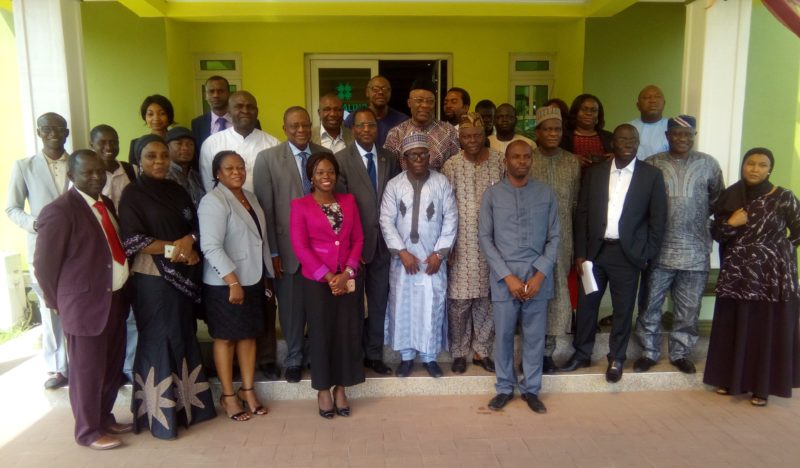Nigeria took a major stride towards the development of it’s First Biennial Update Report (BUR1) to the United Nations Framework Convention on Climate Change (UNFCCC) when stakeholders gathered on Monday, December 18, 2017 to authenticate the document.

The alidation of the draft text likewise signalled the close of the project, which commenced April 2015 with the meeting of the Local Project Appraisal Committee (LPAC). The Monday meeting held in in Keffi, Nasarawa State.
The Conference of Parties (COP) to the UNFCCC adopted at the COP16 in 2010 in Cancun, Mexico the Biennial Update Report (BUR) for the purpose of enhancing reporting of climate change mitigation actions and their effects.
Consequently, Nigeria, as one of the non-Annex1 Parties under the UNFCCC, has the obligation to prepare and submit every two years, reliable, comprehensive, consistent, comparable and transparent BUR to the COP.
The scope of the BUR essentially covers information on natural circumstances and institutional arrangements, National Greenhouse Gas Inventory Reports (NIR), information on mitigation actions and their effects – methodologies and assumptions, constraints and gaps, and related financial, technical capacity needs – supported needed and received, information on the levels of support received for BURs preparation and submission, and information on domestic measurement and reporting and verification.
Permanent Secretary, Federal Ministry of Environment, Dr. Shehu M. U. Ahmed, while declaring the session open, restated the ministry’s commitment to implementing the overall mandate of the Climate Change Convention and its Protocol.
“This present administration acknowledges that inaction is even far more expensive as it will hinder the actualisation of Mr. President’s Change Mantra and the Sustainable Development Goals,” he said.
Dr Ahmed added: “With the realisation of the potential dangers of global warming and the consequent socio-economic implications to the whole world, the United Nations adopted the Framework Convention on Climate Change in 1992. The objective of the Convention is to stabilise greenhouse gas (GHG) concentrations in the atmosphere at a level that would prevent dangerous anthropogenic interference with climate system.
“In this regard, Nigeria as a Party to the UNFCCC and Kyoto Protocol (KP) has the obligation to submit to the Convention an accurate and consistent internationally comparable data on GHG emissions. This is essential for the international community to take the most appropriate action to mitigate climate change, and ultimately to achieve the objective of the Convention.
“Towards the preparation of Nigeria’s first BUR, we have all invested significant time and resources. Series of meetings have been held which provided a platform for deliberations, consultations and inputs in the thematic areas of the Report. The National Stakeholders Validation Meeting is being held with the expectation of finalising and producing the final copy of the First Biennial Update Report.”
Director Department of Climate Change, Federal Ministry Of Environment, Dr. Yerima P. Tarfa, in a welcome address, expressed the nation’s delight to be involved in the exercise as, according to him, it underlines Nigeria’s contribution towards fulfilment of the reporting obligations under the UNFCCC. This, he noted, gives the country an opportunity to communicate its low carbon development efforts in a transparent manner.
According to him, consequent upon the validation, the endorsed document would be submitted for the commencement of the ICA process, “where it will be reviewed and analysed, upon which, if meeting the requirement and approved, it will be published and made available on the UNFCCC website”.
Along with key national experts and the United Nations Development Programme (UNDP) (strategic partner), Dr Tarfa expressed appreciation to the firms that handled the thematic sectors of the BUR, which he listed to include:
- National Green House Gas Inventory – Triple “E” Systems Associates Ltd
- Mitigation Analysis – E &Y
- Domestic Measurement, Reporting and Verification – Millcon and Millcon Consult.
By Michael Simire
